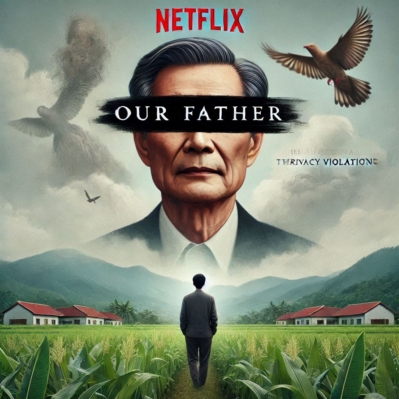Bowling et al vs. Netflix, Inc. et al
Case Background
On June 27, 2022, Plaintiff Sarah Bowling and Lori Kennard filed a personal injury lawsuit in the United States District Court, Indiana Southern, Indianapolis Division (Case number: 1:22cv1281). This case was assigned to Judge Tanya Walton Pratt and referred to Magistrate Judge Mark J. Dinsmore.
Cause
When Netflix and Blumhouse began producing Our Father, they contacted many of Dr. Cline’s “Secret Children,” including the Plaintiff. They assured her in writing that they would not reveal her identity without her consent. Relying on these promises, the Plaintiff did not authorize the use of her name, image, or likeness. Despite this assurance, the Netflix documentary Our Father publicly identified the Plaintiff by name and included her photograph, labeling her as one of the Secret Children. Netflix heavily promoted the documentary, which quickly became a trending feature on its platform, earning significant attention and profits. This unauthorized disclosure of her private information shocked the Plaintiff, especially given the explicit confidentiality assurance she had received.
Injuries
The Plaintiff suffered considerable emotional and psychological harm due to the public disclosure of her identity in the Netflix documentary Our Father. The revelation of her status as one of Dr. Cline’s Secret Children humiliated her and caused significant emotional distress. The unwanted exposure disrupted her personal and professional life, as the documentary reached millions of viewers, including hundreds of thousands of Indiana residents. The Plaintiff felt betrayed and violated, as the disclosure undermined the privacy she had worked hard to preserve. Her reputation within her community was damaged, and the widespread attention to her private life caused ongoing emotional trauma.
Damages
The unauthorized use of the Plaintiff’s name, photograph, and private information in the Netflix documentary Our Father resulted in substantial damages. She endured reputational harm, public embarrassment, and severe emotional distress. Netflix and Blumhouse’s promotion of the documentary only amplified the visibility of this invasion of privacy. The Plaintiff claimed that the Defendants profited from exploiting her private information while ignoring her rights and the promises they made.
In her lawsuit, she sought compensatory damages to address the harm suffered, punitive damages to deter similar misconduct, and statutory relief under Indiana law. She also requested an injunction to prevent the Defendants from further exploiting her identity and to remove her name and likeness from the documentary and related promotional materials.
Key Arguments and Proceedings
Legal representation
- Plaintiff(s): Sarah Bowling | Lori Kennard
- Counsel for Plaintiff: Matthew Thomas Ciulla | Robert D. MacGill | Jordan Cecelia Satterthwaite | Mackenzie Thompson
- Defendant(s): NetFlix, Inc. | Netflix Worldwide Entertainment, LLC | Real House Productions, LLC
- Counsel for Defendants: Andrea Roberts Pierson | Andrew T. Nguyen | Blanca Young | Brad Dennis Brian | Elaine J. Goldenberg | J. Benjamin Broadhead | Jesse Feitel | Kristina Ann Coleman | Rachel Strom | Sara A McDermott | William M. Orr
Key Arguments or Remarks by Counsel
“This is a precedential result,” said Robert MacGill, the plaintiffs’ attorney, on Friday. “The jury verdict confirms how Americans are protected against invasions of privacy by filmmakers.”
The plaintiffs’ attorneys argued that the producers understood the sensitivity of the case, and had promised not to disclose anyone’s identities without their permission. The lawsuit accused Netflix and RealHouse — the documentary arm of Blumhouse Productions, which produced the film — of recklessness and negligence in failing to blur out the women’s names.
Claims
The Plaintiff raised several legal claims against Netflix and Blumhouse Productions. She accused the Defendants of public disclosure of private facts, intentional infliction of emotional distress, and multiple violations under Indiana’s Crime Victim’s Relief Act, including identity deception and theft of her personal property rights. The Plaintiff argued that the Defendants knowingly and intentionally used her identity without consent, causing substantial harm to her privacy, reputation, and emotional well-being. She also highlighted that the Defendants made false promises regarding confidentiality to gain her trust. In addition to monetary damages, she sought a permanent injunction to stop the Defendants from continuing to exploit her identity in the Netflix documentary Our Father or any related materials.
Defense
Netflix and Blumhouse Productions argued that the Plaintiff’s claims were legally insufficient and barred by constitutional protections. The Defendants asserted that Our Father addressed matters of legitimate public concern. They argued that the documentary was protected by the First Amendment and the Indiana Constitution. The Defendants denied any obligation to obtain prior consent to use the Plaintiff’s name and image. They cited Indiana’s Right of Publicity Statute in support of their position. The Defendants contended that their use of the Plaintiff’s identity in Our Father fell within lawful purposes. They also claimed that it was exempt due to newsworthiness.
The Defendants rejected claims of emotional distress and reputational harm, arguing that their conduct did not exceed societal norms or warrant punitive damages. They emphasized that the documentary’s content was factual and publicly accessible. Netflix pointed out that the Plaintiff did not establish malice, which is required for liability when disseminating public issues.
The defense invoked the doctrines of waiver and estoppel, arguing that the Plaintiff implicitly consented by maintaining an online DNA profile. They disputed her damages claims, labeling them excessive and unwarranted. Netflix contended that any relief granted to the Plaintiff would result in unjust enrichment and that punitive and treble damages could not both apply under Indiana law.
Jury Verdict
On December 5, 2024, the jury determined that Lori Kennard proved, by a preponderance of the evidence, that Netflix, Inc., Netflix Worldwide Entertainment, LLC, and RealHouse Productions LLC invaded her privacy by disclosing a private fact. The jury awarded her $385,000 in compensation for the harm caused by the unauthorized disclosure.
On the same day, in a separate verdict for Sarah Bowling, the jury found that she failed to prove, by a preponderance of the evidence, that the defendants had committed the same tort. As a result, the court entered a verdict in favor of the defendants.
On December 6, 2024, Judge Tanya Walton Pratt issued a final judgment. The judgment confirmed the jury’s findings regarding the invasion of privacy claims. It ruled against Sarah Bowling and in favor of the Defendants. However, it ruled against the Defendants and in favor of Lori Kennard, awarding her $385,000.
Court Documents:
Documents Available for Purchase upon Request
Press Release:







Leave A Comment